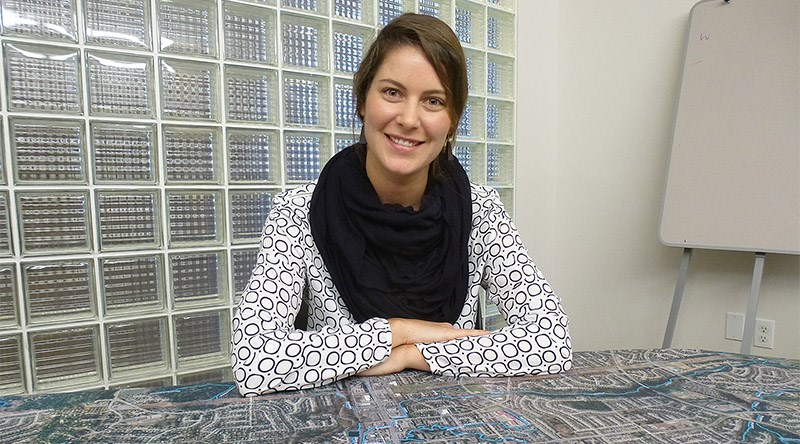An environmental researcher who has studied how best to tag Pacific salmon to study their movements is the new co-ordinator of the Coquitlam River Watershed Roundtable.
Melissa Dick has been hired to oversee the implementation of a new watershed plan for the Coquitlam River that was three years in the making. And the Carleton University grad hopes it will go along way towards protecting the health of salmon for years to come.
"I'm trying to get the attitudes shifting on how people connect with a healthy watershed," Dick said.
Job one will be to raise awareness of the Coquitlam River Watershed Roundtable, a little known group that formed about five years ago to deal with environmental pressures on the river. The group is made up of representatives from real estate development, the gravel mining industry, as well as BC Hydro, municipal, provincial and federal governments, stream stewards and the Kwikwetlem First Nation. It's funded by donations and a grant from the Real Estate Foundation, and for the next three years, Dick will be working on plans to tackle some serious issues on the river.
"I will be doing a lot of public outreach," Dick said, noting that people need to be convinced that their personal well-being benefits from a healthy watershed. "That's the message I hope to promote."
Another issue the roundtable faces is getting funding to support work to improve the health of the river. For example, the development industry could be convinced to create more natural spaces along the river and homeowners could be educated to stop dumping substances harmful to fish into storm drains.
As well, a map could be created that shows how decisions made near local rivers and creeks accumulate over time to have an impact on the watershed.
Other projects include campaigns to stop the spread of invasive species, encouraging people to stop littering and dumping in parks, and even one to show kids how to have fun along the river with harming it.
As well, the plan envisions a campaign to use less water so more is left for Coquitlam River salmon and sharing information about gravel mining operations.
Dick said the sight of chum salmon in local waterways is a good indicator that the river is healthy but more needs to be done to ensure human impacts don't adversely affect the important watershed as more people move into the area over time.
"We need to build that sense of stewardship," Dick said.
• For more information, visit coquitlamriverwatershed.ca. To donate (contributions over $25 are tax deductible), email coordinator@coquitlamriverwatershed.ca.



